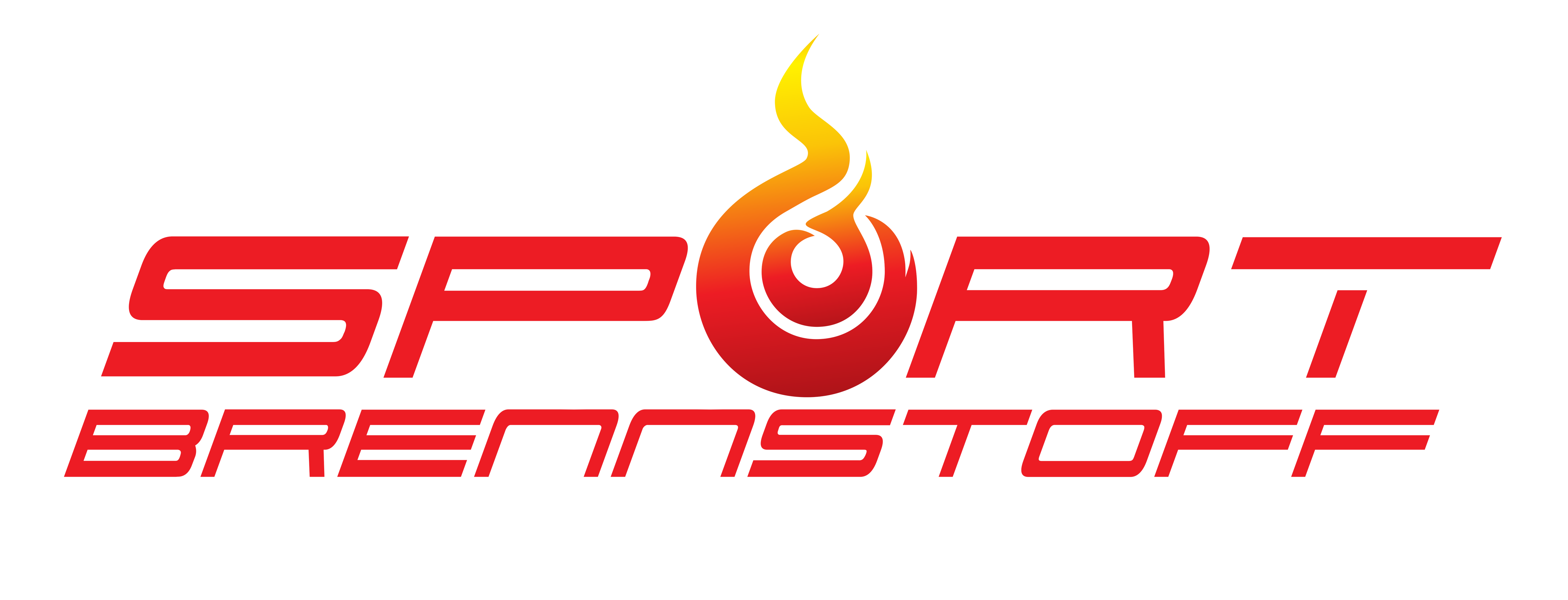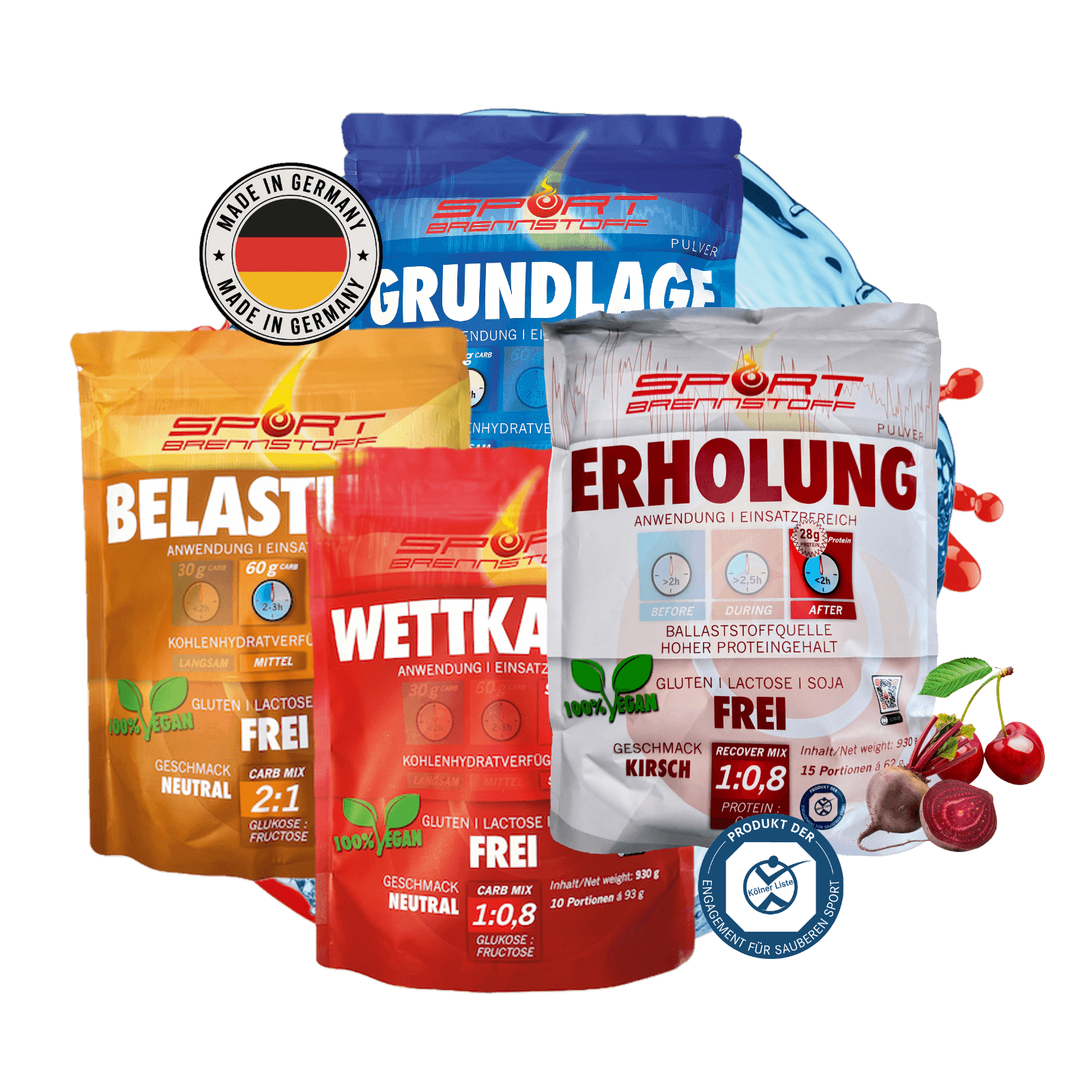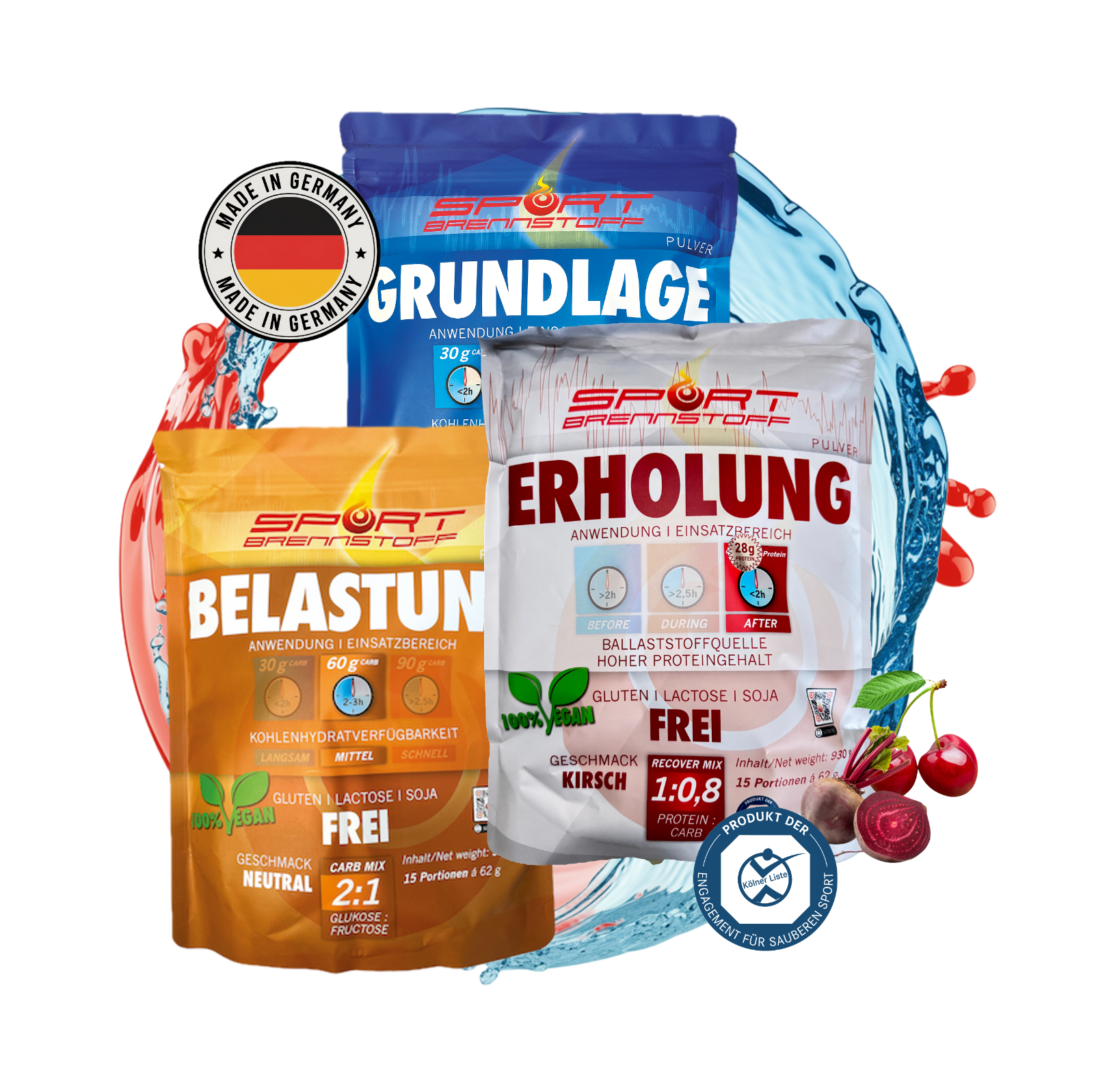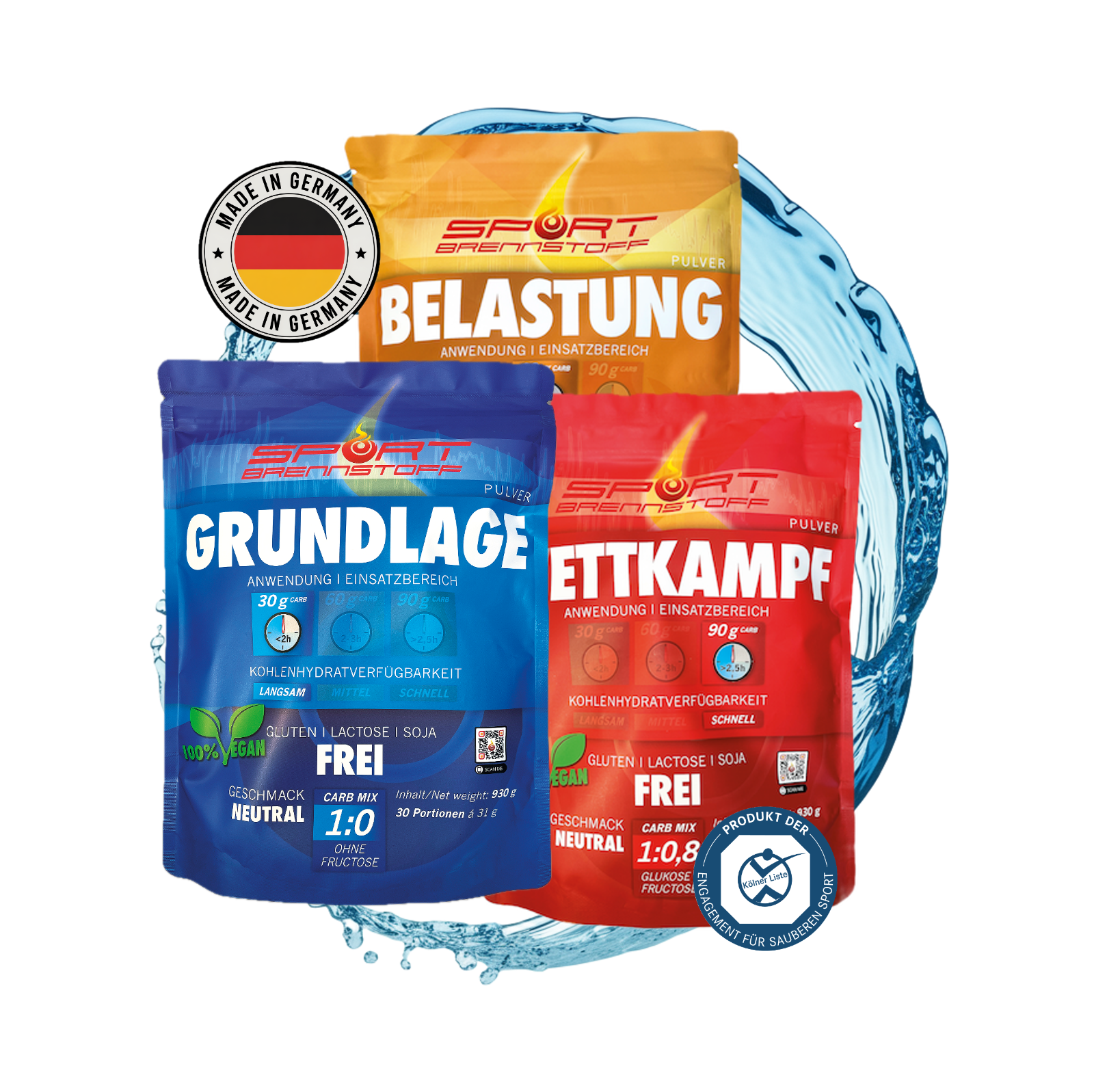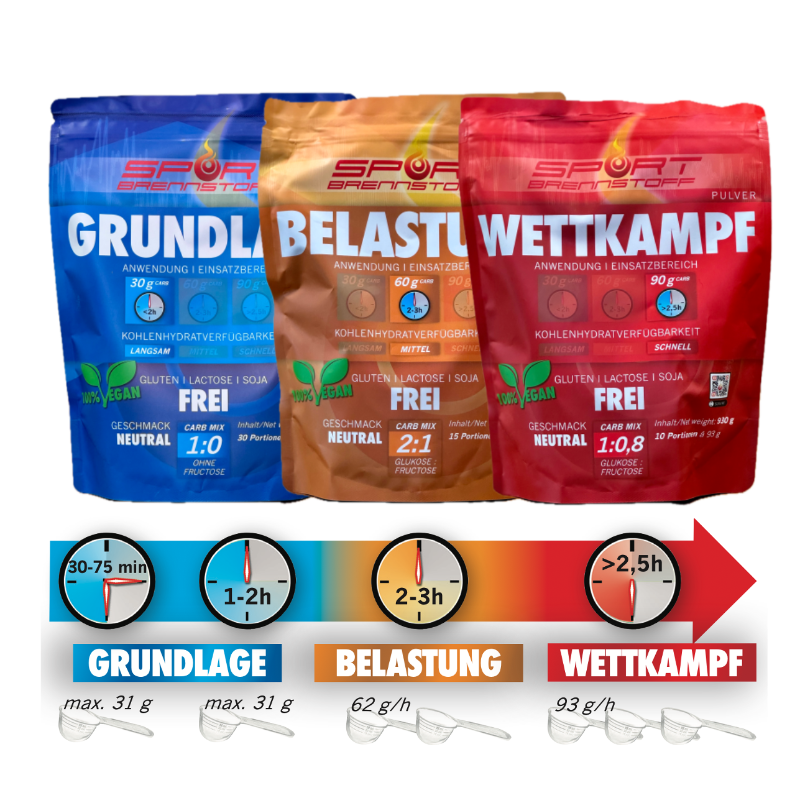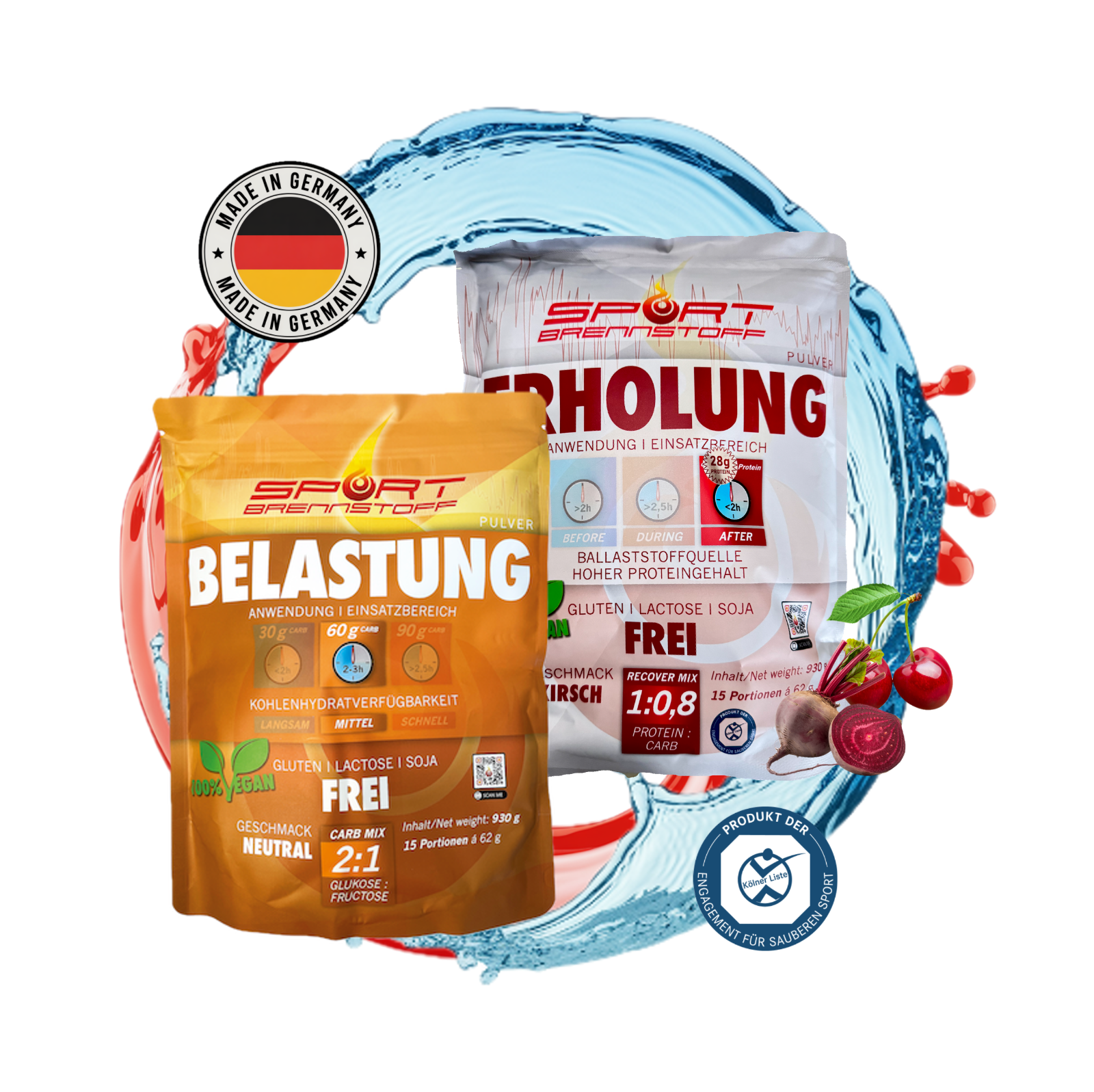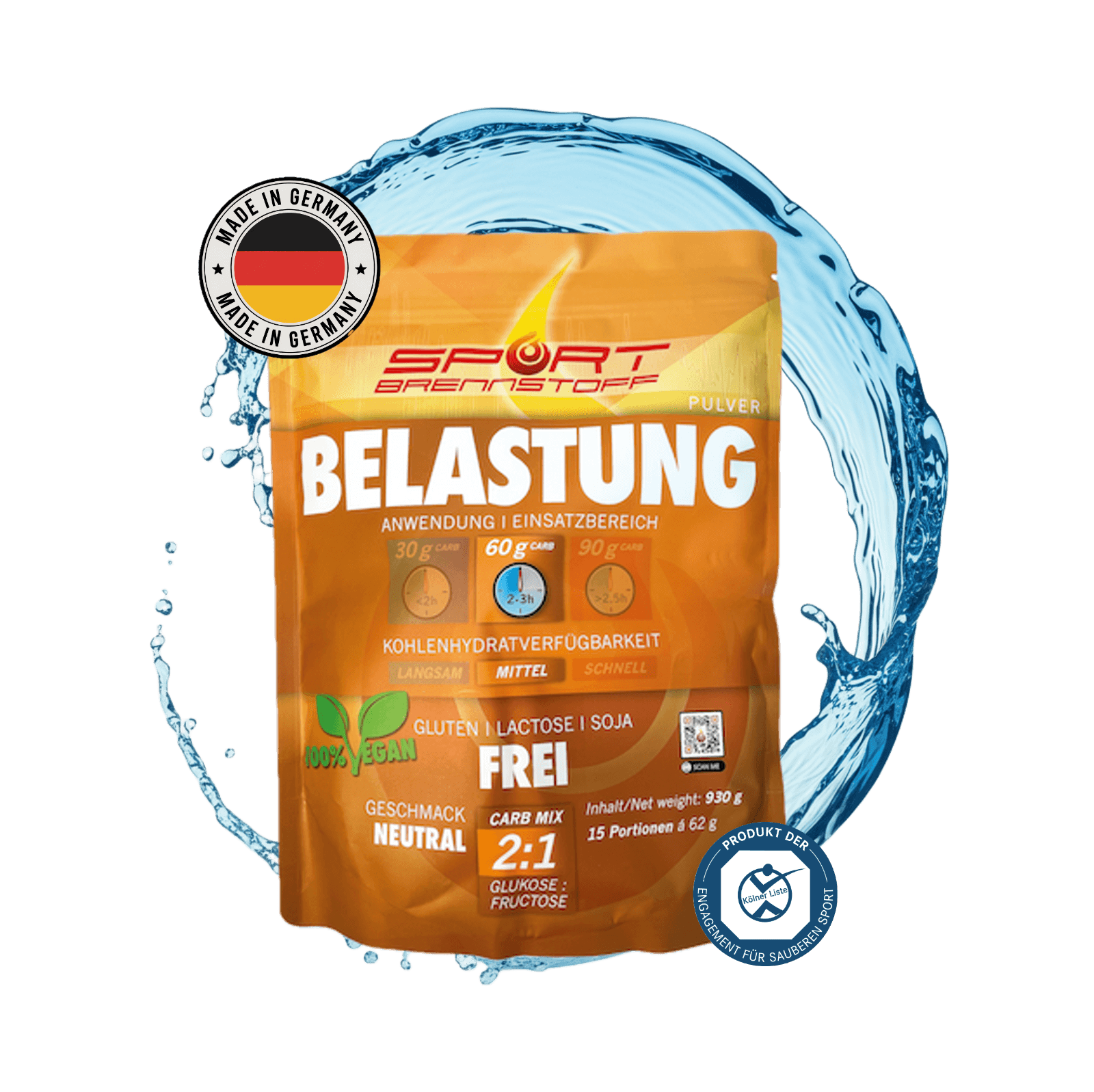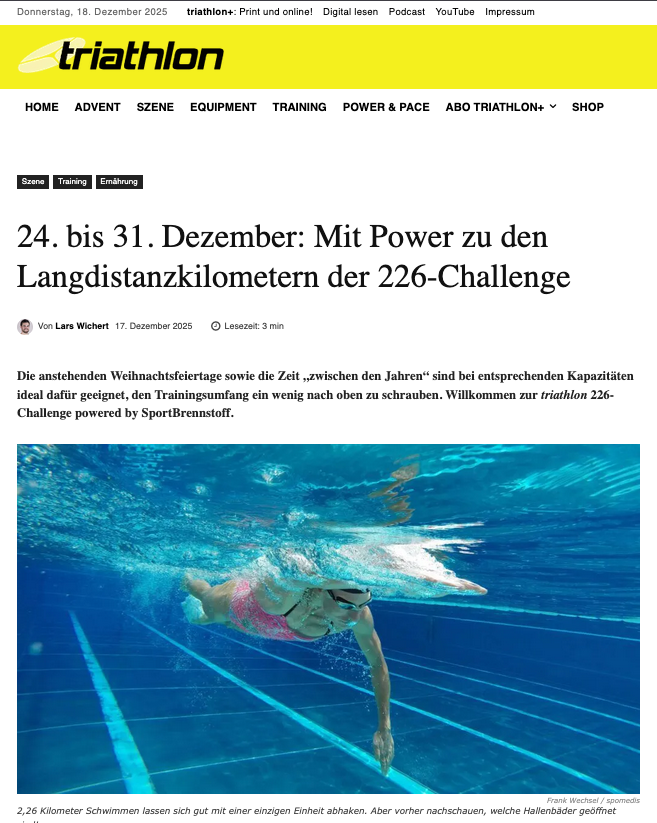
Sport-Specific Nutrition in Sports
Every sport is individual and challenging. A special discipline is nutrition before, during and after sport. A balanced diet is the basis, but not enough to use the strain for optimal performance development and to avoid injuries.
Cycling
Cycling, whether in competition or training, places specific demands on sports nutrition, which are crucial for the performance and recovery of athletes. The following aspects are particularly important to meet the energy requirements and physical challenges this sport entails:
- Carbohydrate requirement
- Fluid requirements
- Protein for muscle repair and growth
- Timing of food intake
- Micronutrients
- Food intake during the competition/ exertion
While cycling, athletes can absorb particularly high amounts of carbohydrates per hour. This is mainly because the gastrointestinal tract is less stressed and there are no immediate impact loads as in running. Nevertheless, specific amounts of carbohydrates must always be trained with.
Read more
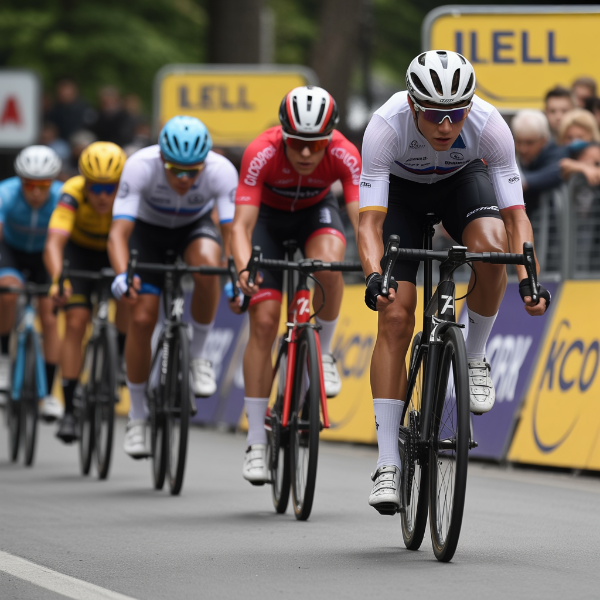
Sports nutrition in cycling
Introduction
Sports nutrition in cycling has some special features tailored to the specific demands of this sport. While cycling, the body and digestive tract are relatively relaxed and not subjected to any particular shocks or movements. However, attention should be paid to a good riding position. Due to the low additional strain on the digestive tract, cyclists can also be supplied with slightly firmer food (special bars, bananas, etc.). This allows for the supply of carbohydrates with longer availability (more complex carbohydrates) during lighter units. However, it should be noted that during a race, due to the high strain on the cardiovascular system, there is a reduced absorption capacity for more complex carbohydrates. This situation should be repeatedly practiced during training. Then there will be no surprises during the race if the body simply cannot digest complex carbohydrates. Here are the most important aspects of nutrition before, during and after exertion:

Before the stress
🥪 Light meals: It is advisable to eat a light, easily digestible meal 2-3 hours before cycling, even during training, to avoid digestive problems. Therefore, correct planning of the cycling session is very important here. Choose easily digestible carbohydrates, e.g., white bread with honey.
___
🍼 Hydration: 400 to 600 ml of fluid should be consumed 20 to 40 minutes before starting cycling. A carbohydrate-rich, isotonic drink is best.
___
☕️ A strong coffee 30 minutes before the start can increase performance.
___
🥣 Replenish carbohydrate stores: Consume 7-12g of carbohydrates per kg of body weight in the 1-2 days before a competition.
___
It is important to consume the light meal before the race/training really early, in order not to impair the energy supply during exertion.

During the stress
🍼 Regular fluid intake, approximately every 15 to 20 minutes, in sips.
___
🧂 Electrolytes: For longer training sessions or competitions, the intake of electrolytes is important. It is recommended to consume 200-500 mg of sodium per 750 ml of water.
___
🍞 Carbohydrates: 30g for base training sessions, 60g for endurance training sessions, and 90g for high-intensity training sessions per hour.
___
While cycling, the maximum carbohydrate intake can be achieved with approximately 120g of carbohydrates per hour. The right product and training to this amount should definitely be tested. When consuming gels during a race or training, make sure to drink sufficient fluids (even during training!). Replenishment every 20 minutes is recommended.
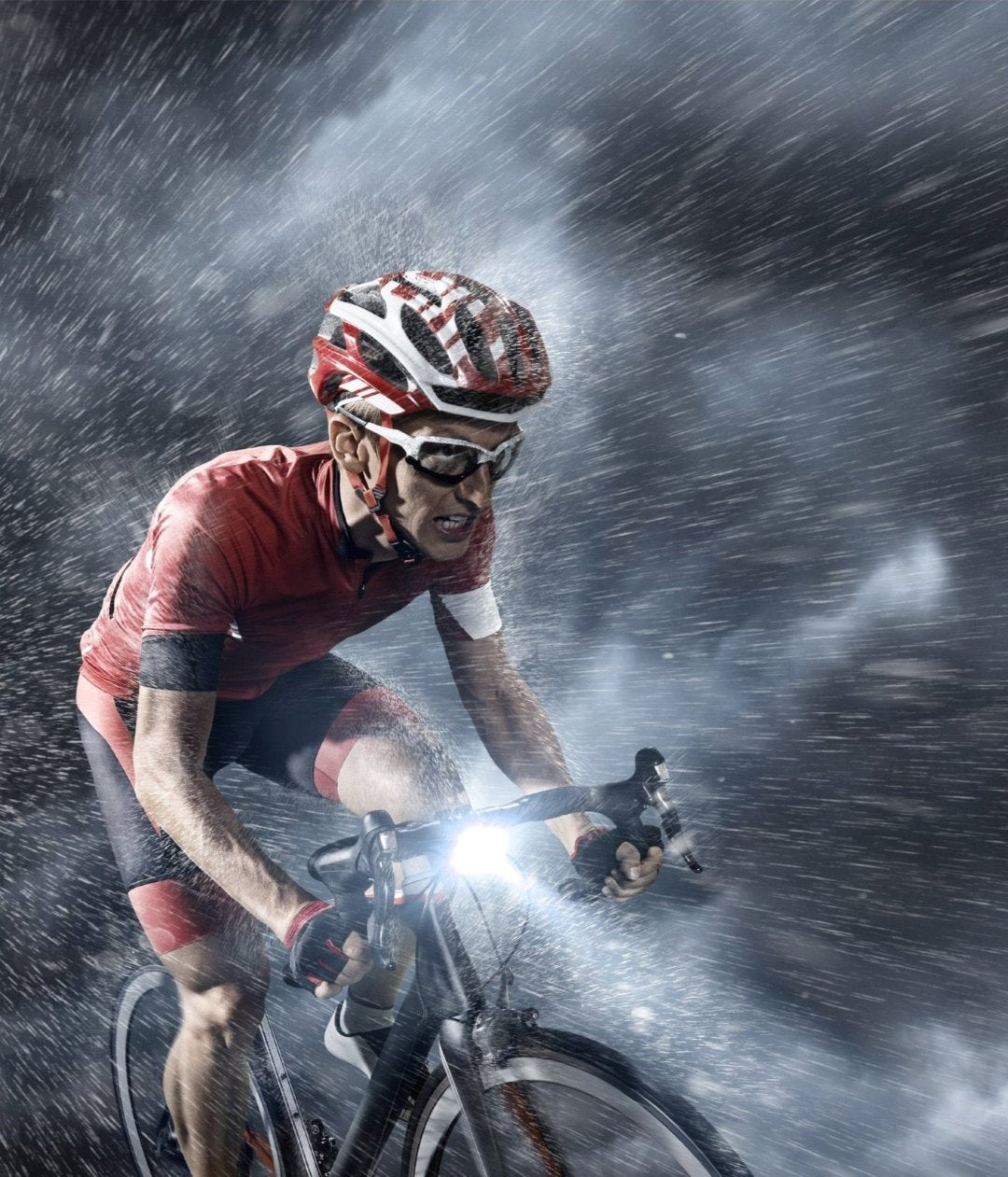
After the stress
🍞 Rapid carbohydrate intake: Glycogen storage in the muscles is most effective in the first two hours after the workout. A carbohydrate-rich meal (approx. 400-500 kcal, 60-70% carbohydrate) should be consumed as soon as possible. Carbohydrate:protein ratio of 3:1.
___
🍳 Protein intake: 10-20 grams of protein should be consumed immediately after training or competition to support muscle repair and immune function. The guideline is approximately 0.2g to 0.4g of protein per kg of body weight.
___
🍼 Rehydration: Fluid loss should be compensated. Sports drinks or fruit juice spritzes in a 2:1 or 1:1 ratio are recommended. However, be careful with fruit juice spritzes. The fructose content is relatively high here.
___
🧂 Electrolyte balance: Using drinks with electrolytes promotes optimal rehydration of the muscles. Pay attention to the correct mineralization when choosing mineral water.
___
The closer the protein and carbohydrate intake is to the end of exertion or a competition/training session, the better the effect. The open-window effect can already be reduced by protein intake, and glycogen stores fill up much faster than with later supply.
___
By following these nutritional strategies, cyclists can optimize their performance and accelerate recovery. It is important that each athlete considers their individual needs and adapts their diet accordingly.
___
DGE Position Paper: Carbohydrates in Sports Nutrition
DGE Position Paper: Fluid Management in Sports
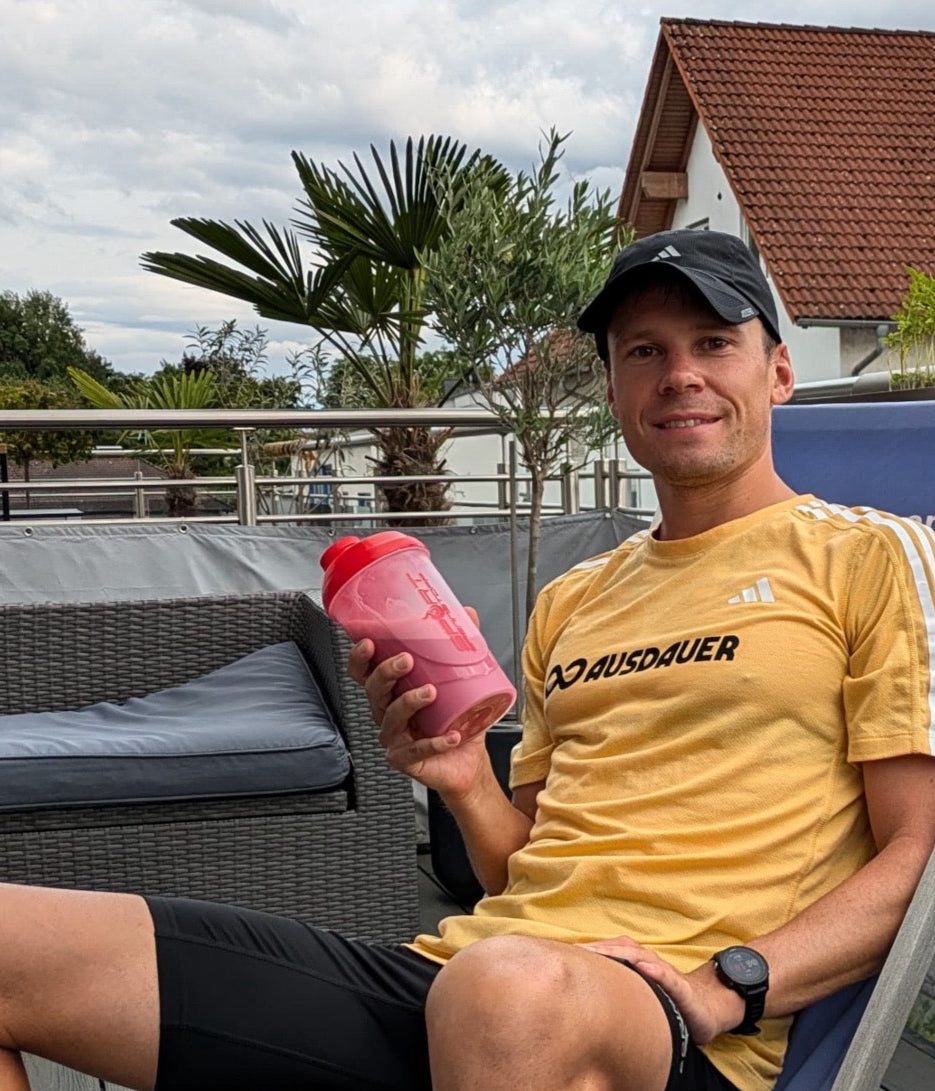
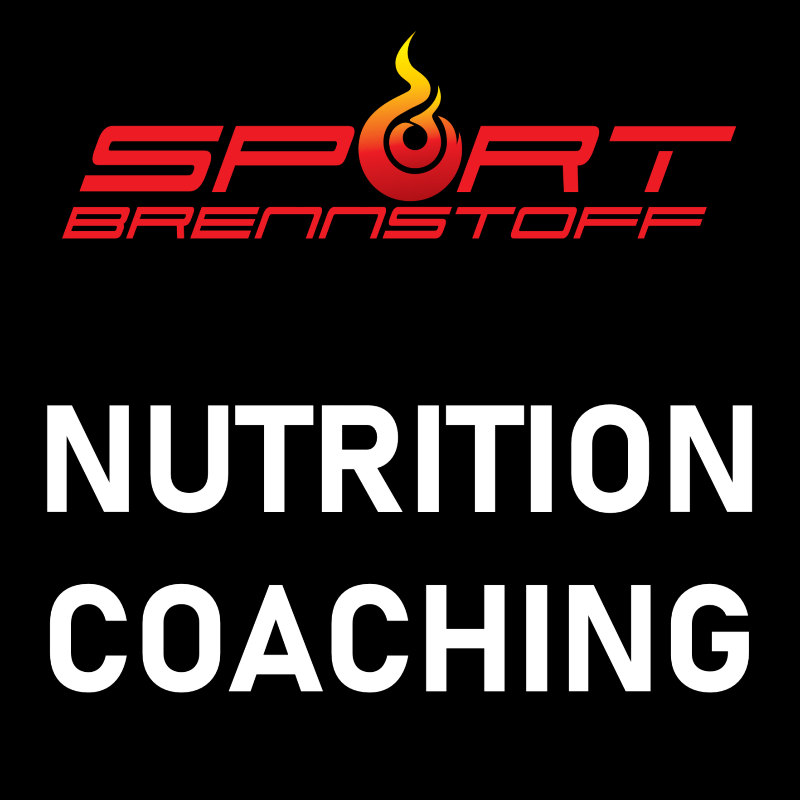
Nutrition Coaching at SportBrennstoff
Our nutrition coaching provides you with personalized nutritional support tailored to your individual goals, training routine, and lifestyle. Whether you want to improve performance, enhance recovery, regulate your weight healthily, or simply increase your energy levels – we will work together to develop a practical nutrition plan that is easy to implement. Through regular feedback sessions and close support, we ensure that you benefit sustainably from your nutrition and achieve your goals with motivation.
TO THE OFFERLet customers speak for us
from 258 reviewsIch empfinde das Produkt als top und geschmacklich auch sehr gut. Allerdings ist mir die Konsistenz bei der empfohlenen Dosis viel zu dick und reduziere die Menge.
Eines der besten Produkte die es auf dem Markt meiner Meinung nach gibt. Der Service zudem hervorragend.
Top - genau richtig und so wie‘s draufsteht! Geschmacklich neutral und nicht aufdringlich. Nicht süß und kein Kratzen im Hals.
Ich habe die Erholung wiederholt gekauft und finde es klasse!
Also wettkampfbasis verwendet - vor allem am Fahrrad als Versorgung - super vertragen und top versorgt.
Ich mag dass es sehr neutral schmeckt, und super für lange Einheiten ist! Alles drin was man braucht.
Funktioniert super, sogar derGroßvater hat es ausprobiert und ist sehr zufrieden mit dem Ergebnis des Produktes..
Gutes Produkt, bekömmlich und ohne Nebenwirkungen wie Unwohlsein, Völlegefühl
Ich habe seit Jahren Neurodermitis und habe so einige Sportgetränke ausprobiert und benutzt, aber Grundlage schmeckt mir nicht nur gut, sondern meine Haut verträgt es besonders gut, weil es Fruktose Frei ist. Keine roten Augen mehr die nach Stunden anfangen zu tränen.
Hervoragendes Kohlenhydrat für den Wettkampf. Ein wenig süß aber sehr magenverträglich. Habe vieles ausprobiert und mich auf Sportbrennstoff festgelegt.
Sehr wirksamsPulver,hab diesesProduk für lange Distanzen beim Ultratrail benutzt und war von der schnellen Kohlenhydrate Zufuhr sehr begeistert 👍
Klein, aber fein, gute Qualität
Guter Shaker
Wie immer beste Qualität
Top, sehr verträglich !
Stay in touch and well informed...
Become a member of the SportBrennstoff Club and receive an exclusive 10% discount on your first purchase.

Free shipping
from €60 in Germany and Austria

Hassle-free shopping
Satisfaction guarantee and transparent return conditions

Secure payments
Absolutely secure processing of all payments

Satisfied customers
Over 25,000 customers | ø 4.9 ⭐️ with +250 reviews
PRODUCT PORTFOLIO
INFORMATION
Environmentally conscious
Our packaging is environmentally friendly, and we participate in the Green Dot recycling system. Please support our efforts and recycle our packaging.
© 2025 SportBrennstoff®. All Rights Reserved
